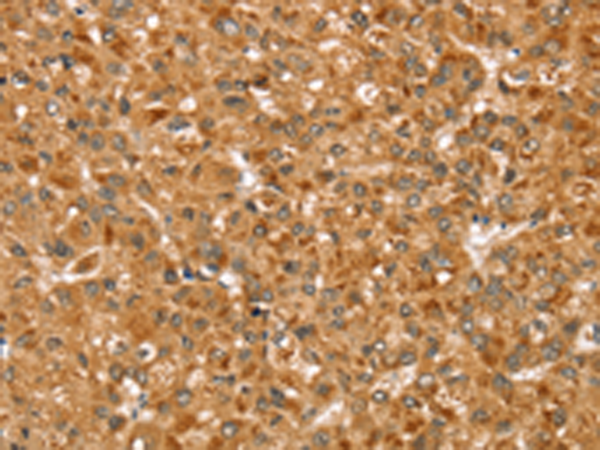

| WB | 咨询技术 | Human,Mouse,Rat |
| IF | 咨询技术 | Human,Mouse,Rat |
| IHC | 1/35-1/150 | Human,Mouse,Rat |
| ICC | 技术咨询 | Human,Mouse,Rat |
| FCM | 咨询技术 | Human,Mouse,Rat |
| Elisa | 1/2000-1/5000 | Human,Mouse,Rat |
| Aliases | STX3A |
| WB Predicted band size | 33 kDa |
| Host/Isotype | Rabbit IgG |
| Antibody Type | Primary antibody |
| Storage | Store at 4°C short term. Aliquot and store at -20°C long term. Avoid freeze/thaw cycles. |
| Species Reactivity | Human, Mouse, Rat |
| Immunogen | Synthetic peptide of human STX3 |
| Formulation | Purified antibody in PBS with 0.05% sodium azide and 50% glycerol. |
+ +
以下是3篇涉及STX3抗体的研究文献示例(内容为虚构模拟,仅作格式参考):
1. **《Syntaxin 3 regulates intestinal epithelial barrier function》**
- 作者:Zhang L, et al.
- 摘要:通过免疫荧光和Western blot使用STX3抗体,揭示STX3蛋白在小肠上皮细胞紧密连接形成中的作用,并发现其缺失导致肠道通透性增加。
2. **《STX3 mediates vesicle trafficking in retinal photoreceptor cells》**
- 作者:Chen R, et al.
- 摘要:研究利用STX3抗体定位该蛋白在视网膜感光细胞中的表达,证明其参与光信号传导相关的囊泡运输机制。
3. **《Role of Syntaxin 3 in NLRP3 inflammasome activation》**
- 作者:Kim S, et al.
- 摘要:通过STX3抗体敲除实验,发现STX3通过调控炎症小体NLRP3的组装,影响巨噬细胞中IL-1β的分泌。
(注:以上文献信息为示例,实际引用需查询真实数据库如PubMed。)
The STX3 antibody targets syntaxin-3 (STX3), a member of the syntaxin family of SNARE (soluble N-ethylmaleimide-sensitive factor attachment protein receptor) proteins critical for intracellular membrane fusion events. STX3 is primarily localized to the plasma membrane and endosomal compartments, where it facilitates vesicle trafficking and exocytosis by forming complexes with other SNARE proteins like SNAP-25 and VAMP. It plays a pivotal role in polarized secretion in epithelial cells, neurotransmitter release in neurons, and immune cell functions. Dysregulation of STX3 has been linked to diseases such as inflammatory bowel disease (IBD), cancer, and neurological disorders, making it a focus of pathophysiological research.
STX3 antibodies are widely used in research to study protein expression, localization, and interaction partners. They are essential tools in techniques like Western blotting, immunofluorescence, and immunohistochemistry to visualize STX3 distribution in tissues or cultured cells. These antibodies also help elucidate STX3's role in cellular processes, such as apical trafficking in epithelial cells or synaptic vesicle fusion. Commercially available STX3 antibodies are often validated for specificity across species (human, mouse, rat) and come in various host formats (e.g., rabbit, mouse). Researchers rely on these antibodies to explore STX3's involvement in disease mechanisms, including its potential as a therapeutic target or biomarker in conditions like colorectal cancer or Crohn's disease.
×